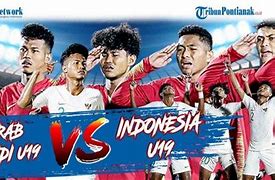
Apply Visa Amerika
Verifikasi dan Pengambilan visa
Petugas akan melakukan verifikasi dokumen dan memberitahu kapan visa bisa diambil. Proses pembuatan Visa Taiwan biasanya memakan waktu dua hingga tiga hari kerja. Anda bisa datang ke kantor TETO seisai jadwal informasi kapan visa selesai.
Visa Taiwan Overseas Chinese
Selain jenis visa di atas, Taiwan juga memiliki visa overseas chinese. Visa Taiwan "Overseas Chinese" adalah visa khusus yang ditujukan untuk keturunan warga negara Tionghoa yang kini tinggal di luar negeri.
Beberapa hal yang perlu diketahui tentang visa Taiwan Overseas Chinese:
Isi Formulir Online di Situs Web TETO
Akses website RCO Taiwan atau buka link ini dan pilih jenis visa yang Anda inginkan. Isi formulir online dengan lengkap, termasuk informasi pribadi, tujuan perjalanan, dan korespondensi di Taiwan (jika ada). Jika sudah diisi, cetak formulir lalu submit. Contoh pengisian formulir yang tepat bisa buka link ini.
Siapkan dokumen-dokumen yang diperlukan, seperti paspor yang masih berlaku minimal 6 bulan, fotokopi KTP dan Kartu Keluarga, fotokopi rekening koran 3 bulan terakhir, surat keterangan kerja, tiket pesawat pulang pergi, bukti pemesanan hotel di Taiwan, pas foto terbaru 4x6 cm, dan biaya visa.
Syarat Mengurus Visa Taiwan
Syarat dan prosedur pengurusan setiap jenis visa Taiwan Karena itu, Anda perlu memilih visa yang sesuai dengan tujuan Anda melancong ke negara tersebut. Berikut syarat pengajuan visa Taiwan berdasarkan jenisnya:
Sumber:https://en.mofa.gov.tw/
Berapa Biaya Visa Taiwan?
Biaya visa Taiwan bervariasi tergantung pada jenis visa dan jenis paspor yang Anda miliki. Berikut perkiraan biaya pembuatan visa Taiwan untuk pemilik paspor Indonesia:
Biaya visa dibayarkan dalam dolar Taiwan (NT$) di Kantor Ekonomi dan Budaya Taipei di Indonesia (KDEI) atau Pusat Aplikasi Visa Taiwan (VAC). Anda dapat membayar biaya visa dengan uang tunai atau kartu kredit/debit. Perlu diingat bahwa biaya visa tidak termasuk biaya layanan yang mungkin dikenakan oleh KDEI atau VAC.
Enter your email address and password to sign in
Visa applicants, including children, are required to pay a non-refundable, non-transferable visa application fee, sometimes referred to as the MRV fee, before applying for a nonimmigrant visa. The visa application fee must be paid whether a visa is issued or not. The type of visa for which you apply determines the fee amount. Depending on your citizenship and the type of visa you are applying for, you may also have to pay a visa issuance or “reciprocity” fee. This webpage lists visa application fees associated with each nonimmigrant visa type.
Please note that only the application fees for nonimmigrant visas are listed here.
Although fees are listed in U.S. dollars, payment must be made using local currency. You can pay your fee at any Burgan Bank location. More information about payment options is here. To find a Burgan Bank branch, click here.
Your visa application fee is non-refundable and you cannot transfer it to another person. You will receive a receipt after paying the application fee.All nonimmigrant visa application fee (also known as the MRV fee) payments made on or after October 1, 2022, are valid for 365 days from the date a receipt is issued for payment of the MRV fee. Applicants must schedule an interview appointment or submit an interview waiver application during this 365-day period. Please note applicants must only schedule their interview or submit their waiver application within the 365-day period. There is no requirement the interview must occur during the 365-day period. All receipts for payment of MRV fees issued before October 1, 2022, were extended until September 30, 2023, and remain valid until this date.
In some cases, additional visa fees are paid directly to the National Visa Center, to the U.S. Embassy or to the Department of Homeland Security.
Applicants from certain countries may be required to pay a visa issuance fee after their application is approved. These fees are based on "reciprocity" (what another country charges a U.S. citizen for a similar-type of visa). The United States strives to eliminate visa issuance fees whenever possible, however, when a foreign government imposes these fees on U.S. citizens for certain types of visas, the United States will impose a "reciprocal" fee on citizens of that country for similar types of visas. The Department of State's website has more information about visa issuance fees and can help you determine if an issuance fee applies to your nationality.
The Student and Exchange Visitor Information System (SEVIS) is an Internet-based system that tracks F, M, and J visa participants (and their family members) from the time they receive their initial documentation (either an I-20 or a DS-2019) until they graduate/leave school or conclude/leave program.
F, M and J visa principal applicants: Check with your U.S. school to make sure your information has been entered into SEVIS. You will need to pay a separate SEVIS fee in addition to the visa application fee. For nonimmigrant students with Form I-20, the SEVIS fee is US$350. DHS will maintain the $35 I-901 SEVIS Fee for J exchange visitors in the au pair, camp counselor, and summer work travel program participant categories, but the full I-901 SEVIS Fee for other J exchange visitors is now $220.. Proof of payment is required before your student or exchange visitor visa will be issued. Payment cannot be made at the U.S. Embassy. Instructions for paying the SEVIS fee can be found here.
Applicants participating in a U.S. Government sponsored program (programs whose codes begin with G-1, G-2, G-3, G-7) are not required to pay the SEVIS fee.
Blanket L Fee (Fraud Prevention and Detection Fee)First-time principal applicants who are covered under a blanket petition for L status must pay a Fraud Prevention and Detection fee of US $500. This fee should be paid to the cashier at the Consular Section on the day of the interview. If a subsequent L-1 visa application is based on a new Form I-129S, the Fraud Prevention and Detection fee must be collected again.
If you want to work in the U.S. temporarily as a nonimmigrant, under U.S. immigration law, you need a specific visa based on the type of work you will be doing. Most temporary worker categories require that your prospective employer or agent file a petition, which must be approved by the U.S. Citizenship and Immigration Services (USCIS) in the United States before you can apply for a work visa.
All applicants for H, L, O, P and Q visas must have a petition approved on their behalf by USCIS. The petition, Form I-129, must be approved before you can apply for a work visa at the U.S. Embassy. When your petition is approved, your employer or agent will receive a Notice of Action, Form I-797, which serves as your petition's approval notification. The consular officer will verify your petition approval through the Department of State's Petition Information Management Service (PIMS) during your interview.
You must bring your I-129 petition receipt number to your interview at the U.S. Embassy in order to verify your petition's approval. Please note that approval of a petition does not guarantee issuance of a visa if you are found to be ineligible for a visa under U.S. immigration law.
An H-1B visa is required if you are coming to the United States to perform services in a pre-arranged professional job. To qualify, you must hold a bachelor's or higher degree (or an equivalent degree) in the specific specialty for which you seek employment. USCIS will determine whether your employment constitutes a specialty occupation and whether you are qualified to perform the services. Your employer is required file a labor condition application with the Department of Labor concerning the terms and conditions of its contract of employment with you.
H-1B1 (Treaty-based Temporary Work Visas)
Free trade agreements signed with Chile and Singapore permit qualified Chilean and Singaporean citizens to temporarily work in the United States in certain circumstances. Only Chilean and Singaporean citizens are eligible as principal applicants, although their spouses and children may be nationals of other countries.
Applicants for H-1B1 visas should already have a job offer from an employer in their chosen work area in the United States, but the employer does not have to file Form I-129, Petition for Nonimmigrant Worker, and the applicant does not need to obtain a Notice of Approval, Form I-797 form before submitting the visa application. However, the petitioner does need to file an Application for Foreign Labor Certification with the Department of Labor prior to applying for the visa. For more information on the H-1B1 visa, please visit travel.state.gov/content/visas/en/employment/temporary.html
An H-2A visa allows U.S. employers to bring foreign nationals to the United States to fill temporary agricultural jobs for which U.S. workers are not available. An H-2A nonimmigrant classification applies to you if you seek to perform agricultural labor or services of a temporary or seasonal nature in the United States on a temporary basis. A U.S. employer (or an association of U.S. agricultural producers named as a joint employer) must file a Form I-129, Petition for Nonimmigrant Worker, on your behalf.
This visa is required if you are coming to the United States to perform a job which is temporary or seasonal in nature and for which there is a shortage of U.S. workers. Your employer is required to obtain a Department of Labor certification confirming that there are no qualified U.S. workers eligible for the type of employment on which your petition is based.
An H-3 visa is required if you are coming to the United States to receive training from an employer in any field of endeavor, other than graduate education or training, for a period of up to two years. You can be paid for your training and "hands-on" work is authorized. Training cannot be used to provide productive employment and cannot be available in your home country.
If you are the principal holder of a valid H visa, your spouse or unmarried children (under age 21) may receive an H-4 visa to accompany you to the United States. However, your spouse/children are not permitted to work while in the United States.
An L-1 visa is required if you are the employee of an international company which is temporarily transferring you to a parent branch, affiliate, or subsidiary of the same company in the United States. The international company may be either a U.S. or foreign organization. To qualify for an L-1 visa, you must be at the managerial or executive level, or have specialized knowledge and be destined to a position within the U.S. company at either of these levels, although not necessarily in the same position as held previously. In addition, you must have been employed outside the United States with the international company continuously for one year within the three years preceding your application for admission into the United States. You may only apply for an L-1 visa after your U.S. company or affiliate has received an approved petition from USCIS, either on a "blanket" or individual basis.
If you are the principal holder of a valid L visa, your spouse or unmarried children (under age 21) may receive this derivative visa. Due to a recent change in the law, your spouse may seek employment authorization. Your spouse must enter the United States on his or her own L-2 visa and then submit a completed Form I-765 (obtainable from USCIS), along with an application fee. Your children are not authorized to work in the United States.
Type O visas are issued to people with extraordinary ability in the sciences, arts, education, business and athletics, or extraordinary achievement in motion picture and television production, and their essential support personnel.
Type P visas are issued to certain athletes, entertainers, artists and essential support personnel who are coming to perform in the United States.
A Q visa is required if you are traveling to the United States to participate in an international cultural exchange program for the purpose of providing practical training, employment, and the sharing of the history, culture, and traditions of your home country. You must have a petition filed on your behalf by the program sponsor and the petition must be approved by USCIS.
The U.S. Embassy or may process your H, L, O, P or Q visa application up to 90 days prior to the beginning of employment status as noted on your I-797. However, when making your travel plans, please note that due to Federal regulations, you can only use the visa to apply for entry to the United States starting ten days prior to the beginning of the approved status period noted on your I-797.
If you apply for an H, L, O, P, or Q visa, you must submit the following:
In addition to these items, you must present an interview appointment letter confirming that you booked an appointment through this service. You may also bring whatever supporting documents you believe support the information provided to the consular officer. Paper copies of the I-797 are not required at the interview.
Complete the Nonimmigrant Visa Electronic Application (DS-160) form.
Pay the visa application fee.
Schedule your appointment on this web page. You need three pieces of information in order to schedule your appointment:
Visit the U.S. Embassy on the date and time of your visa interview. You must bring a printed copy of your appointment letter, your DS-160 confirmation page, one photograph taken within the last six months and your current and all old passports. Applications without all of these items will not be accepted.
In addition to these items, you must present an interview appointment letter confirming that you booked an appointment through this service. You may also bring whatever supporting documents you believe support the information provided to the consular officer.
Caution: Do not present false documents. Fraud or misrepresentation can result in permanent visa ineligibility. If confidentiality is a concern, you should bring your documents to the U.S. Embassy in a sealed envelope. The U.S. Embassy will not make your information available to anyone and will respect the confidentiality of your information.
Consular officers look at each application individually and consider professional, social, cultural and other factors during adjudication. Consular officers may look at your specific intentions, family situation, and your long-range plans and prospects within your country of residence. Each case is examined individually and is accorded every consideration under the law.
If you are a first time visa applicant, you may save time by bringing the following documents to your interview:
Your dependents should bring all required documents for any nonimmigrant visa, plus:
For more information about H, L, O, P and, Q visas, visit the Department of State's Temporary Workers webpage.
Wilayah yang Berlaku Visa Taiwan
Visa Taiwan yang Anda dapatkan hanya berlaku untuk wilayah Taiwan saja dan pulau-pulau kecil disekitarnya, yakni Penghu, Kinmen, Matsu, Wu Qiu, dan Pulau Anggrek (Lanyu). Karena itu, Visa Taiwan tidak berlaku untuk wilayah lain di luar daftar tersebut. Ini berarti bahwa jika Anda berencana untuk mengunjungi wilayah lain di luar Taiwan, Anda perlu memperoleh visa terpisah untuk negara atau wilayah tersebut.
Penting untuk selalu memperhatikan persyaratan visa yang berlaku untuk setiap negara atau wilayah yang ingin Anda kunjungi. Jika Anda memiliki pertanyaan lebih lanjut tentang persyaratan visa atau ingin mendapatkan informasi terbaru, disarankan untuk menghubungi kedutaan atau konsulat setempat.
Negara Bebas Visa Taiwan
Bagi para pelancong dari Asia Tenggara, Taiwan kini menawarkan bebas visa untuk kunjungan wisata selama 14 atau 30 hari. Hal ini membuka peluang bagi Anda untuk menjelajahi pulau Formosa yang indah dengan mudah dan hemat.
Negara-negara Asia Tenggara yang tercantum dalam kebijakan bebas visa ini adalah:
Syarat-syarat yang perlu Anda penuhi untuk mendapatkan bebas visa Taiwan:
Bagi pemegang paspor darurat atau paspor sementara:
Jenis-Jenis Visa Taiwan
Visa Taiwan dikategorikan menjadi 10 jenis utama, berdasarkan tujuan kunjungan dan identitas pemohon:
Sumber Gambar: www.roc-taiwan.org
Harap dicatat bahwa persyaratan visa dapat berubah sewaktu-waktu, oleh karena itu disarankan untuk selalu memeriksa persyaratan visa terbaru yang dikeluarkan oleh Kedutaan Besar Taiwan atau menghubungi agen perjalanan yang terpercaya untuk informasi yang paling akurat.
Cara Apply Visa Taiwan
Proses apply visa Taiwan bisa bervariasi tergantung pada jenis visa yang Anda ajukan dan negara asal Anda. Berikut adalah langkah-langkah umum untuk mengurus visa Taiwan:
Business/Tourist Visa
The B-1/B-2 visitor visa is for people traveling to the United States temporarily for business (B-1) or for pleasure or medical treatment (B-2). Generally, the B-1 visa is for travelers consulting with business associates, attending scientific, educational, professional or business conventions/conferences, settling an estate or negotiating contracts. The B-2 visa is for travel that is recreational in nature, including tourism, visits with friends or relatives, medical treatment and activities of a fraternal, social or service nature. Often, the B-1 and B-2 visas are combined and issued as one visa: the B-1/B-2.
If you apply for a B-1/B-2 visa, you must demonstrate to a consular officer that you qualify for a U.S. visa in accordance with the U.S. Immigration and Nationality Act (INA). Section 214(b) of the INA presumes that every B-1/B-2 applicant is an intending immigrant. You must overcome this legal presumption by showing:
Personal or domestic employees and crew members working aboard vessels within the Outer Continental Shelf may qualify for B-1 visas under certain circumstances.
Some foreign nationals may be ineligible for visas according to The Immigration and Nationality Act. You can read more about The Immigration and Nationality Act and visa ineligibility here.
If you apply for a business/tourist visa, you must submit the following:
In addition to these items, you must present an interview appointment letter confirming that you booked an appointment through this service. You may also bring whatever supporting documents you believe support the information provided to the consular officer.
Complete the Nonimmigrant Visa Electronic Application (DS-160) form.
Pay the visa application fee.
Schedule your appointment on this web page. You need three pieces of information in order to schedule your appointment:
Visit the U.S. Embassy or Consulate on the date and time of your visa interview. You must bring a printed copy of your appointment letter, your DS-160 confirmation page, one photograph taken within the last six months and your current and all old passports. Applications without all of these items will not be accepted.
Supporting documents are only one of many factors a consular officer will consider in your interview. Consular officers look at each application individually and consider professional, social, cultural and other factors during adjudication. Consular officers may look at your specific intentions, family situation, and your long-range plans and prospects within your country of residence. Each case is examined individually and is accorded every consideration under the law.
Caution: Do not present false documents. Fraud or misrepresentation can result in permanent visa ineligibility. If confidentiality is of concern, the applicant should bring the documents to the U.S. Embassy or Consulate in a sealed envelope. The U.S. Embassy or Consulate will not make this information available to anyone and will respect the confidentiality of the information.
You should bring the following documents to your interview. Original documents are always preferred over photocopies and you must bring these documents with you to the interview. Do not fax, email or mail any supporting documents to the U.S. Embassy or Consulate.
Additionally, based on your purpose of travel, you should consider bringing the following:
Bring your latest school results, transcripts and degrees/diplomas. Also bring evidence of financial support such as monthly bank statements, fixed deposit slips, or other evidence.
Bring an employment letter from your employer and pay slips from the most recent three months.
Bring evidence of your position in the company and remuneration.
Bring photocopies of your relative's proof of status (e.g. Green Card, naturalization certificate, valid visa, etc).
If you were previously in the United States, any documents attesting to your immigration or visa status.
If you wish to travel to the United States for medical treatment, then you should be prepared to present the following documentation in addition to the documents listed above and those the consular officer may require:
If the consular officer authorizes issuance of any non-immigrant visa (e.g. B1B2 visa) to a citizen of Yemen, the visa applicant must pay an additional issuance fee (reciprocity fee) of US$30.00. The fee will be paid in cash in US$ or local currency by the applicant after the visa interview at the consular section’s cashier window.
Medical travelers, if you need to stay in the United States for longer than 6 months or past the “Admitted Until” date stamped in your passport by U.S. Customs and Border Protection (CBP), the following applies:
To extend your stay in the United States, you must file a request with U.S. Citizenship and Immigration Services (USCIS) using Form I-539, Application to Extend/Change Non immigrant Status before your authorized stay expires. If you remain in the United States longer than authorized, you may be barred from returning and/or you may be ordered removed (deported) from the United States. Check the date in your passport to determine the date your authorized stay expires. If you are unclear when your authorized stay expires, you may go to http://i94.cbp.dhs.gov/I94/#/home to check the most updated information. Remember that you are responsible for all of your medical expenses and that seeking or accepting medical benefits at U.S. government expense may make you ineligible for a visitor visa.
Visit the Website to verify your eligibility and to file the Form I-539. Please note that you will have to create an account with USCIS to file the Form I-539 online.
In accordance with the agreement signed between the United States and China to extend visa validity, beginning on November 29, 2016, Chinese citizens with 10-year B1, B2 or B1/B2 visas in Peoples’ Republic of China passports will be required to update their biographical and other information from their visa application via a website every two years, or upon getting a new passport or B1, B2, or B1/B2 visa, whichever occurs first. This mechanism is called EVUS - Electronic Visa Update System.
The EVUS website is now open to the public for enrollments at www.EVUS.gov. CBP will not collect a fee for EVUS enrollment at this time. CBP anticipates the eventual implementation of an EVUS enrollment fee, but does not have a time frame. Until the implementation of a fee, travelers can enroll in EVUS without charge. The Department of Homeland Security, Customs and Border Protection (CBP) will keep visa holders informed of new information throughout the year. For further information, please visit www.cbp.gov/EVUS.
根据美中双方签署的延长签证有效期的协议,自2016年11月29日起,凡持有10 年 期B1,B2 或 B1/B2签证的中华人民共和国护照持有人需要每两年或在获取新护照或最长有效期的B1、B2或B1/B2签证时时(以先到者为准),通过网站更新他们签证申请上的个人资料及其它信息。这个机制我们称之为EVUS –签证更新电子系统。
EVUS的登记网站www.EVUS.gov 现已开放接受登记。美国海关和边境保护局(CBP)目前不会收取登记费用。美国海关和边境保护局预期EVUS登记收费最终会实施,但目前尚未落实执行时间。在收费实施前,旅客可以免费完成EVUS登记。美国国土安全部海关和边境保护局将在今年及时向签证持有人公布最新的信息。获取更多的信息,请访问 www.cbp.gov/EVUS。
For more information about business and tourist visas, visit the Department of State's website.



